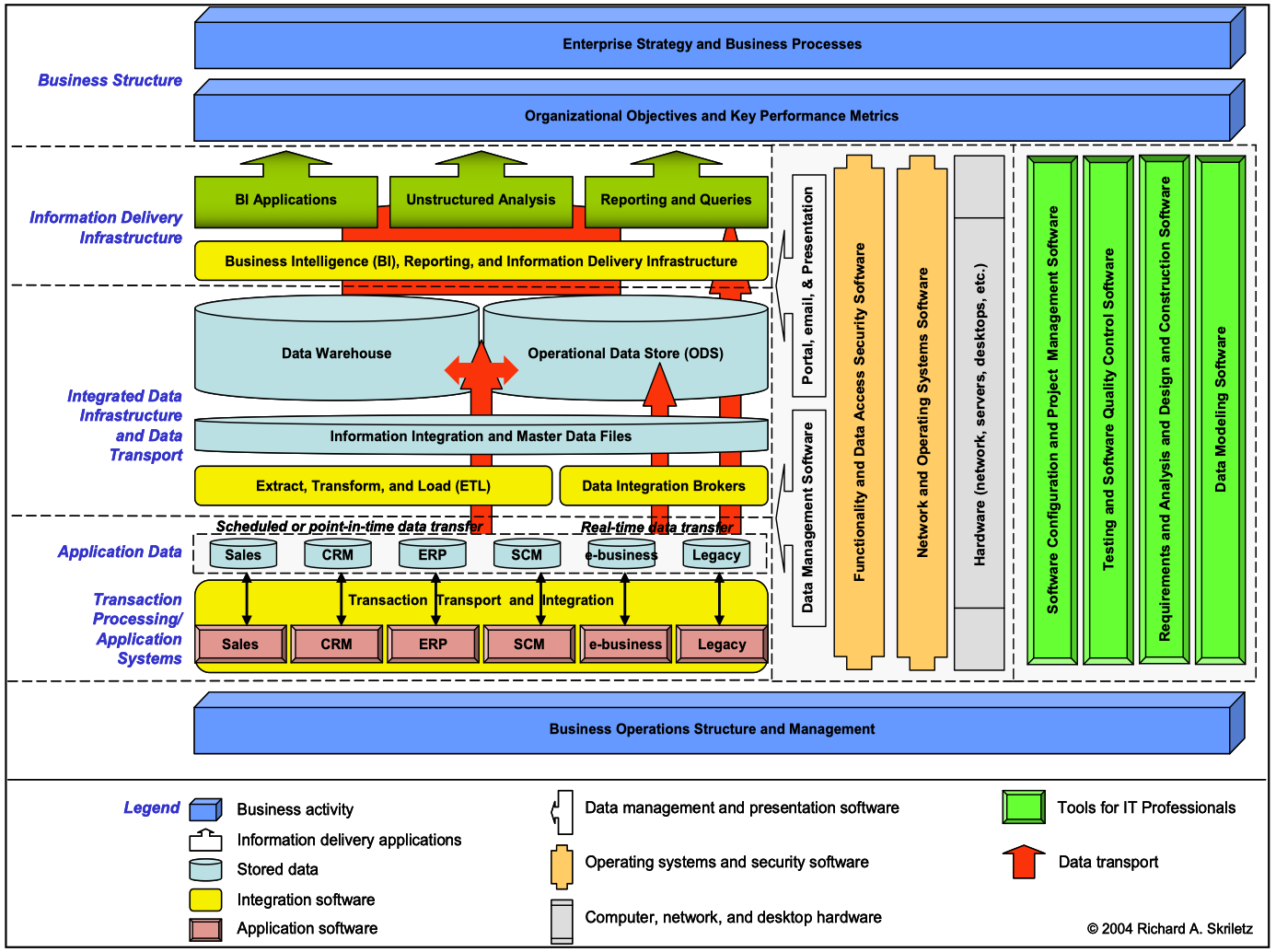Simplifying IT Requires Reinventing IT
Legacy IT has accumulated complexity from the many different applications and technologies every company has used, all of which need technical experts to install, maintain, and support them.
Typically, each application uses its own version of business data and rules, requiring technicians to integrate, standardize, and correct data from disparate sources for reporting and analysis, as shown in Figure 1.

Figure 1: IT complexity is driven by the disparate applications and technologies that support business needs
The complexity of IT applications, technologies, and processes is a huge problem for companies that want to transform themselves, utilize new technologies, and become agile for digital business.
“Complexity is the sand that grinds all innovation to a halt . . . . [It] acts as a significant tax on IT value” (www.cio.com)
There are three root causes of IT complexity that must be addressed:
- Creation, support, and enhancement of business applications and analytics have been done by people, one program or project at a time;
- Each application or analytic has been designed using one or more specific technologies; and
- Each advance in technology has been used for new applications and analytics, adding to the increasingly tangled assemblage of hardware, software, and support requirements.
Replacing legacy IT requires analyzing the causes of complexity and developing a solution that will simplify IT.
How to Simplify IT: Automate It With InfoNovus Instant IT
Legacy IT will never morph into a service that is automated, instant, and economical. The increasing popularity of cloud-based infrastructure, platform, and software-as-a-service options still share the three root causes of IT complexity identified above. Also, each additional technology uses its own version of business data and rules, still causing the need to integrate, standardize, and correct data from disparate applications for reporting and analysis. These new offerings may be better than legacy IT but they do not provide the transformation needed for digital business success.
InfoNovus Instant IT will:
- Eliminate manual work from the process of creating, supporting, and enhancing business applications and analytics;
- Untangle the web of technologies and unavoidable need for data integration, standardization, and correction by reducing the technology mix to an irreducible minimum; and
- Easily incorporate new technologies without requiring new business applications and analytics or needing to change existing ones.
A simplified, automated IT must deliver three key innovations to make IT instant

Automate IT Work
Accelerating delivery of services and applications cannot be done when IT is labor-intensive and time-consuming. Automation of IT work is the only way IT can operate at the speed the business needs.

Use a Core Technology Stack
Automated IT is based on a core technology stack that will meet the demands of digital business, support all digital data, and operate with current methods for interaction between applications, such as containers and Kubernetes.

Future-proof Applications and Analytics
To be future-proof, business needs must exist as metadata, not as a program or an implementation technology. Automation must take this metadata and generate it to run on an existing or future technology without changing its nature.
It’s time to apply technology to the way IT operates within the company.
InfoNovus Instant IT Reinvents IT And How It Works
Instant IT makes IT automated, instant, and economical so IT organizations can become agile, responsive, and valuable parts of the business.
As company operations become increasingly automated and digital speed and capabilities become more important, current IT technologies, practices, and policies cannot continue. It is time to begin a new way of fulfilling the enterprise IT function.
Instant IT Automation Will Change What IT Organizations Do
The work of IT organizations will change when they no longer need to have programmers and technology specialists develop and sustain applications and systems. A company's business units need new kinds of support that IT will be positioned to provide.
Legacy IT Must Go
Delivering enterprise-scale digital services and applications drive the need to simplify IT with automation so IT organizations can focus their energies on the needs of the business.

